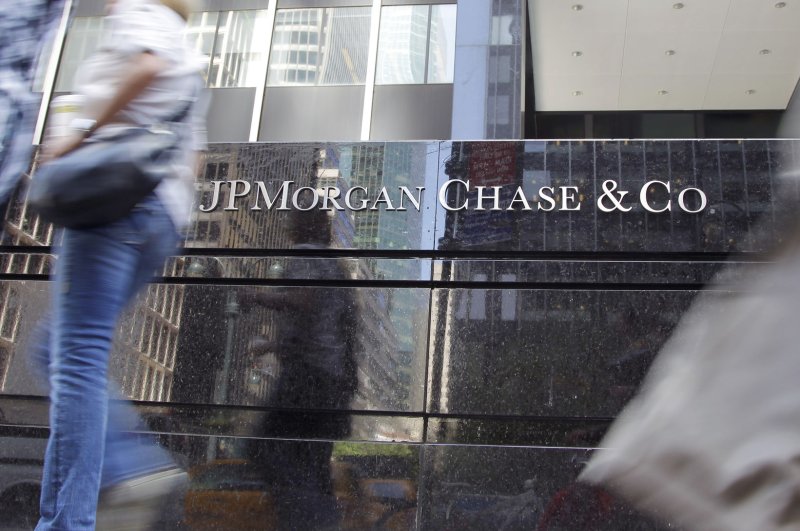JPMorgan Chase, the largest bank in the United States by assets, settled a class-action lawsuit this week stemming from complaints that the bank used predatory practices in a government-sanctioned debit card program for former inmates of federal prisons. File Photo by John Angelillo/UPI |
License Photo
PHILADELPHIA, Aug. 3 (UPI) -- The largest bank in the United States settled a class-action lawsuit this week that stemmed from outcry over excessive fees the institution charged former prison inmates over the last four years.
JPMorgan Chase won a government contract in 2008 to furnish inmates freed from all U.S. federal prisons with debit cards connected to money they were sent or earned while incarcerated. The program started in 2012.
But, ex-prisoners say, they definitely weren't get-out-of-jail for free cards.
According to the complaint, Chase unfairly siphoned exorbitant fees from the accounts that ordinary bank customers did not have to pay.
For example, newly freed customers had to pay $10 to get money at a teller window, a service offered at no charge to regular customers. Also, the bank charged nearly $25 to replace a lost card -- nearly five times the amount normal customers paid. In fact, former inmates had to pay the bank 45 cents every time they checked their card balance online, the suit said.
The lawsuit said Chase's debit card program was intended to "exploit one of the most vulnerable groups imaginable" -- federal prison inmates.
The legal action was filed in September and led by Philadelphia artist and former inmate Jesse Krimes, who served almost six years in a federal penitentiary. Upon his release, he was dismayed at the list of fees Chase had charged him for ordinary banking activity.
Krimes, 33, said his suit was led by the frustration felt by many released prisoners.
"Everything about the federal prison system is designed to grind you into hopelessness," he said. "Coming home and trying to piece together a stable life, to have this very wealthy bank preying on you, was just unconscionable."
JPMorgan Chase, which this year reported assets of $2.4 trillion, settled the suit this week, agreeing to pay nearly $500,000 in reimbursement fees as well as up to $250,000 in court costs.
Neither Chase, nor the U.S. Department of the Treasury, which awarded the contract, responded to the lawsuit's settlement this week.
JPMorgan Chase is the largest bank in the United States by assets.










